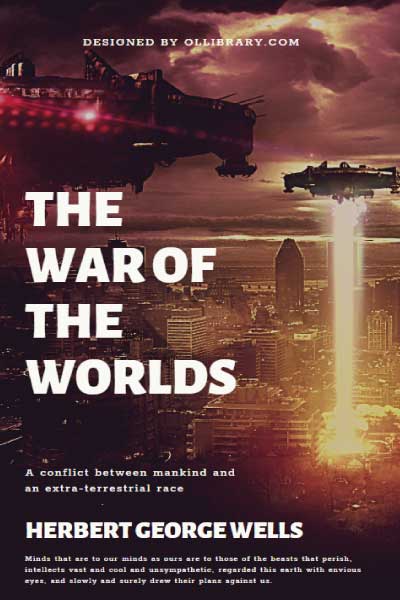The War of the Worlds
The book's plot was similar to numerous works of invasion literature which were published around the same period, and has been variously interpreted as a commentary on the theory of evolution, British colonialism, and Victorian-era fears, superstitions and prejudices. Wells later noted that an inspiration for the plot was the catastrophic effect of European colonisation on the Aboriginal Tasmanians; some historians have argued that Wells wrote the book in part to encourage his readership to question the morality of imperialism. At the time of the book's publication, it was classified as a scientific romance, like Wells's earlier novel The Time Machine.
The War of the Worlds has been both popular (having never been out of print) and influential, spawning half a dozen feature films, radio dramas, a record album, various comic book adaptations, a number of television series, and sequels or parallel stories by other authors. It was memorably dramatised in a 1938 radio programme directed by and starring Orson Welles that allegedly caused public panic among listeners who did not know the book's events were fictional. The novel has even influenced the work of scientists, notably Robert H. Goddard, who, inspired by the book, helped develop both the liquid-fuelled rocket and multistage rocket, which resulted in the Apollo 11 Moon landing 71 years later.
Excerpted from The War of the Worlds on Wikipedia.
The War of the Worlds
| Author | Herbert George Wells |
| Country | United Kingdom |
| Genre | Science fiction, War |
| Copyright | Public domain in the United States. |
| Book cover | Thanks to Adobe Express |
| Ebooks | Project Gutenberg |
| Scans | Google-digitized |
| Audio | Librivox | Internet Archive Reader: Cori Samuel 01 02 03 04 05 06 07 08 09 10 11 12 13 14 15 16 17 18 19 20 21 22 23 24 25 26 27 |
| Read online | The War of the Worlds |


